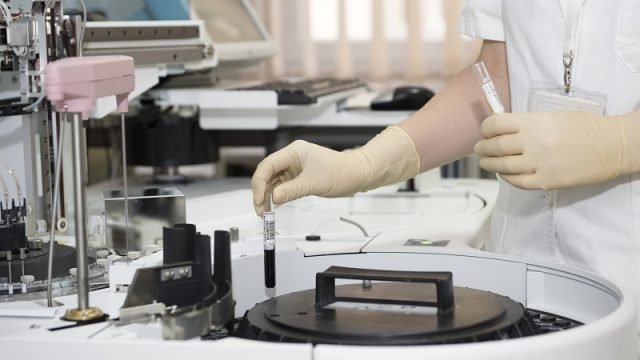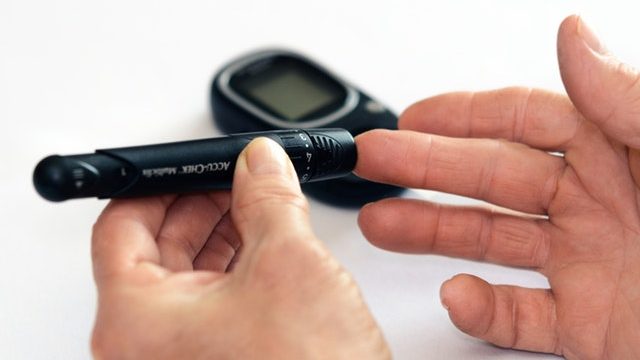What is Gestational Diabetes?
Gestational Diabetes (GDM) is diabetes that occurs for the first time in pregnancy.
- Insulin is a hormone produced in the pancreas that regulates sugar metabolism in the body.
- Gestational diabetes occurs when pregnancy hormones affect the function of the insulin and therefore the sugar levels rise.
- Hyperglycemia (high levels of sugar in the blood), can damage the nerves, blood vessels, and organs in your body.
When is Gestational Diabetes detected?
Gestational diabetes usually starts between week 24 and week 28 of pregnancy.
Who is at risk?
- Obesity – Women who have an MI of more than 30 are more likely to have gestational diabetes.
- Women who have a higher level of abdominal fat /increased waist-hip ratio.
- If you have a family history of diabetes.
- If you had GDM in a previous pregnancy.
- Women above the age of 35.
What are the common symptoms of Gestational Diabetes?
- Excessive thirst
- Frequent urination in large amounts
- Excessive tiredness
- Repeated episodes of urine infection or fungal infection.
Diagnosis of Gestational Diabetes
- Urine is checked in every antenatal visit for the presence of sugar.
- In early pregnancy, a fasting sugar level test is done, and the sugar level test is repeated 2 hours after a 75 gms glucose challenge.
- All pregnant women are screened for gestational diabetes at week 28 of pregnancy. with a three-hour glucose tolerance test to determine whether they have gestational diabetes.
Impact of GDM on the mother and the baby
With proper treatment and regular monitoring, gestational diabetes can be managed. But if sugar levels remain high then there is a risk to the mother and baby.
Women who have uncontrolled GDM have an increased risk of:
- Miscarriage
- Abnormal fetus
- Preterm delivery
- High blood pressure in pregnancy ( Pre-eclampsia )
- A big baby (macrosomia) makes a vaginal delivery difficult thereby requiring C section.
- Stillbirth usually in the third trimester. Due to uncontrolled GDM, the baby could have increased chances of
- Jaundice
- Breathing difficulties.
- Admission to Intensive care for observation.
- Low sugar levels immediately after birth.
- Obesity and diabetes in adult life.
How to Prevent Gestational Diabetes?
Certain factors such as family history and age cannot be influenced. But obesity can be controlled with a healthy lifestyle, diet, and exercise.
Treatment of Gestational Diabetes?
- Careful control of sugar is of utmost importance. Therefore, regular blood sugar check is required.
- It is important to have a sugar checking kit at home.
- One needs to check the fasting sugar and then two hours after meals.
- Diet control is a fundamental step to achieving sugar control.
- Exercise can go a long way to help with sugar control.
- Lastly, some women may require medication.
- The jury is still out on the safety of anti-diabetic agents during pregnancy.
- Insulin is very safe and is usually the drug of the first choice in pregnancy.
Gestational Diabetes and Care During Pregnancy
During the antenatal period one is likely to have more frequent visits, regular urine and blood sugar tests, slightly more intensive fetal monitoring especially for weight.
In the case of a big baby, there is a chance of induction of labor before the due date, and a higher chance of traumatic/instrumental vaginal delivery and Caesarean section.
Gestational Diabetes and Care During Labor
- The medication for Diabetes is usually avoided after labor starts.
- The sugar is controlled on a glucose drip and Insulin.
- Progress of labor is strictly monitored (especially If there is macrosomia).
- Epidural analgesia can be safely used in GDM.
Gestational Diabetes and Post Delivery
Breastfeeding is ideal and should be started immediately after birth. Breastfeed for as long as possible. Breastfeeding may decrease the risk of developing type 2 diabetes after gestational diabetes.
The sugar levels usually normalize in a few days and therefore the anti-diabetic medication is discontinued after delivery. One will need to check sugar levels 6 weeks later and then regularly because it is possible for women to develop adult-onset Diabetes subsequently.
The babies too need sugar check immediately after delivery as they may have low sugars.
Gestational Diabetes and Future Pregnancy
- It is advisable to achieve normal BMI
- Adopt a healthy lifestyle
- Good dietary measures
- Regular physical exercise before becoming pregnant.
- Folic acid supplementation should be taken 3 months prior to becoming pregnant.










































































































